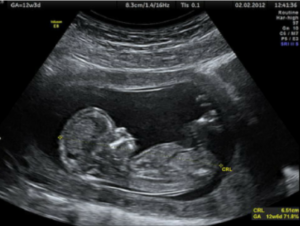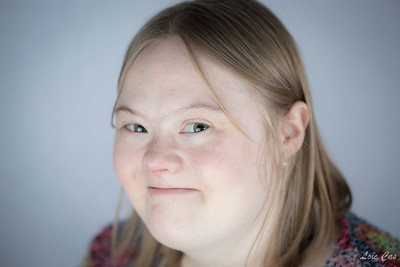


Transformations Of and Through Work
14 June 2022New Russia, New Empire: Prokhanov’s Dream
13 December 2022How to understand pregnant women who refuse screening for Down’s syndrome(1)It is a genetic disease that can cause physical and mental disabilities, the extent and gravity of which cannot be predicted before birth (some forms are light). Its prevalence is 2.7 out of 1,000 in France. Several screening methods exist but they are not all equally reliable. Since 2014, non-invasive methods are offered first (ultrasound and blood test). If trisomy 21 is suspected, the next step may be sampling of the amniotic fluid via amniocentesis, or of placenta tissue with a needle, which carries risks., a disabling genetic disorder, when it is offered? Gaëlle Larrieu and two of her colleagues(2)Caroline Lafarge (School of Human and Social Sciences, University of West London), et Isabelle Ville (Centre d’études des mouvements sociaux, EHESS tackled this question by conducting an online survey over the past five years of 1,726 pregnant women, of whom 217 declined testing (i.e. 12.6%).
Based on their responses to the questionnaire, including comments, and additional in-depth interviews, their study published in the journal Midwifery (3)‘’Why do French women refuse to have Down’s syndrome screening by maternal serum testing? A mixed methods study’’, Caroline Lafarge, Gaëlle Larrieu et Isabelle Ville, Midwifery, Juillet 2022 examined and characterised this population according to socio-demographic variables, their knowledge of Down’s syndrome, and their pregnancy experience. Interview
Why drew you to this issue?
Gaëlle Larrieu: I had the opportunity to participate in this exciting project about prenatal screening issues when I began my PhD. This topic is of a piece with my doctoral research on parental experiences of variations in sexual development, which are increasingly often diagnosed during pregnancy. More broadly, my research led me to question power relations between patients and medical teams as well as consent issues – two themes that are also central to our work on prenatal screening. The subject ultimately touches upon public health, gender and beliefs, the right to physical integrity, and the relationship between patients and health professionals.
What is there to say about this population refusing a test that is recommended by public health authorities and covered by insurance?
G. L.: Women who refuse screening tests(4)Le Dépistage de la trisomie 21, Haute Autorité de la santé publique, 2018 differ from those who accept them in several ways: they are more highly educated and more likely to have at least two children. Because of these prior experiences, they are more familiar with the various stages of prenatal screening and what it entails, before the pregnancy even begins. They are also more likely to have met someone with Down’s syndrome, and to emphasise positive characteristics associated with this syndrome. Finally, they were less anxious during their pregnancy.

Obstetric ultrasound. Source Medical Imaging Center Pyrenees – Bolivar 2021
What are the reasons or arguments given for refusing the test?
G. L.: Half of the women who refuse to screen attribute their choice to their intention to keep the child regardless of the result. They also underscore that ultrasound images and nuchal translucency measurements are sufficient to reassure them and that additional medical examinations would only increase their anxiety. They do not consider the screening to be useful in their case, especially since they know the implications of this stage of screening. Indeed, the tri-test (i.e. the serum marker assay) must be complemented by other tests to ensure reliability. The other tests, particularly amniocentesis, are more invasive and can lead to miscarriage. Most of the women also want to limit the medicalisation of their pregnancy, which they see as a way to retain more control. Contrary to what one might think, few of the interviewed women explain their choice by referring to religion or ‘nature’.
How does consent work? Are there cases where testing occurs without it?
G. L.: Yes, it does! Women who refuse to screen are more likely to have already met a person with Down’s syndrome, be it a family member, neighbour, or acquaintance. When they talk about it, they mention the difficulties associated with the syndrome, but also highlight positive elements: the ‘joy of living’ and positive disposition. Their relationship to disability and inclusiveness are key to understanding their journey.
How does consent work? Are there cases where testing occurs without it?
G. L. :One of the major findings of our study, conducted between 2015 and 2018, is that accepting the tri-test is considered to be the default option. Of the women who agree to test, most (58%) believe it is a routine exam, or even a requirement during pregnancy. Indeed, some explained they hadn’t understood that the test was not mandatory, or felt pressured to do it. Only 29% of women who agreed to the test had made the decision to do so before the first-trimester ultrasound when the test is mentioned. Given that the test is highly recommended by medical teams and that major information gaps surround the screening stages, consent rarely appears to be chosen.
This lack of choice is even more pronounced for nuchal translucency measurement (another screening technique) during the first ultrasound, which is rarely discussed. On the flipside, women who decline to screen see it as a choice – and a difficult one since it involves rejecting a well-established norm.
Is testing refusal conducive to discussions with healthcare staff?
G. L.: Women are often required to justify their choice to healthcare providers who are, for the most part, rather hostile to this refusal. They feel pressure from the providers, especially in hospitals. Providers base their arguments on the child’s health, which contributes to making mothers feel guilty. The latter come up with strategies to remain the drivers of their pregnancy – a strong desire for most of them.

Laura – Portrait session for the 2018 campaign of the “Tombée du Nid” association, for the recognition of people with Down syndrome. Photo credit: Loïc Cas CC BY-NC-ND 2.0
Yet some women reported more attentiveness, especially when they saw midwives outside the hospital. In this context, they expressed feeling more understanding and support for their approach.
Were you able to assess the conditions under which information was provided to patients and the dialogue – if any – between practitioners and pregnant women?
G. L.: Not directly in this study, but I recommend another article by my two co-authors, as well as older research showing that information is transmitted in an emotionally charged environment and constrained timeframe, which contribute to producing forms of ignorance (5) Ville, I., Lafarge, C., “Frames of decision-making in prenatal consultations in England and France. Towards a sociological, relational, and processual approach to autonomy“, J. Eval. Clin. Pract., 26 (2), 2020, and Vassy, C., Rosman, S., Rousseau, B., “From policy making to service use. Down’s syndrome antenatal screening in England, France and the Netherlands“, Soc. Sci.Med.
What recommendations would you make to professionals and public authorities in light of your observation?
G. L.:Our study highlights the emotional and cognitive challenge of screening refusal. Far from a dogmatic attitude, these women make a choice guided by their previous experiences, their desire to control their pregnancy, and their relationship to disability. They need support rather than judgment for their choice.
.
Interview by Bernard Corminboeuf, CRIS
Gaëlle Larrieu is a recent PhD graduate in sociology. She has been teaching in the sociology department of the University of Grenoble Alpes since the beginning of the academic year. She completed her thesis at the Research Center for Social Inequalities (CRIS) under the supervision of Marta Dominguez Folgueras, Associate Professor of Sociology at CRIS, and Anne Revillard, Associate Professor at CRIS and Director of LIEPP. She defended her dissertation ‘Between their children and doctors: parental experiences of variations in sexual development’ on October 13, 2022 at Sciences Po.
Notes
| ↑1 | It is a genetic disease that can cause physical and mental disabilities, the extent and gravity of which cannot be predicted before birth (some forms are light). Its prevalence is 2.7 out of 1,000 in France. Several screening methods exist but they are not all equally reliable. Since 2014, non-invasive methods are offered first (ultrasound and blood test). If trisomy 21 is suspected, the next step may be sampling of the amniotic fluid via amniocentesis, or of placenta tissue with a needle, which carries risks. |
|---|---|
| ↑2 | Caroline Lafarge (School of Human and Social Sciences, University of West London), et Isabelle Ville (Centre d’études des mouvements sociaux, EHESS |
| ↑3 | ‘’Why do French women refuse to have Down’s syndrome screening by maternal serum testing? A mixed methods study’’, Caroline Lafarge, Gaëlle Larrieu et Isabelle Ville, Midwifery, Juillet 2022 |
| ↑4 | Le Dépistage de la trisomie 21, Haute Autorité de la santé publique, 2018 |
| ↑5 | Ville, I., Lafarge, C., “Frames of decision-making in prenatal consultations in England and France. Towards a sociological, relational, and processual approach to autonomy“, J. Eval. Clin. Pract., 26 (2), 2020, and Vassy, C., Rosman, S., Rousseau, B., “From policy making to service use. Down’s syndrome antenatal screening in England, France and the Netherlands“, Soc. Sci.Med. |



